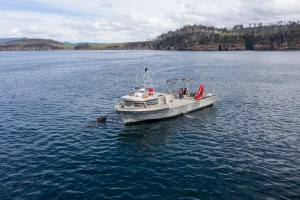AFGC strengthens NPRS team
As the development of the National Plastics Recycling Scheme (NPRS) gains traction, the Australian Food & Grocery Council (AFGC) is adding expertise to its team, with newly appointed consultant Justin Frank joining Helen Millicer to help drive the initiative.

Helen Millicer is one of the first in Australia to explore and articulate the practical steps for Australia’s transition to a more circular economy and has won a number of awards and scholarships for her contributions to society. She has worked in national sustainability roles for two decades, working on projects including Victoria’s first 50 Year Water Plan, renewable energy, organics recycling, plastics and chemicals manufacturing and recently on Victoria’s transforming Kerbside Reform.
Millicer is consultant lead on the NPRS, the first EPR stewardship scheme for Australia, for soft plastics with the Australian Food and Grocery Council. She is also currently chair of the Churchill Trust Panel for Industry, Agriculture and Logistics, an inaugural director for the Tasmanian Government Board on recycling, curator of the annual Aust/NZ SPE Plastics and Circular Economy Conference, and founder of ClimateWise Associations.
Justin Frank is a circular economy leader with applied experience in the UK, Europe and Australia. Frank is MBA qualified with a proven record in driving transformational change leading to sustainable growth, by successfully engaging and enabling teams to implement shared value strategies in global/ASX industrial and environmental services businesses.
With over two decades' experience working in circular economy networks, Frank has successfully implemented multiple sustainable development roadmaps in multinational businesses, which directly correlate to the UN SDGs. He is experienced in partnering with likeminded organisations, from NFPs to Innovation think tanks, to enhance business strategy communication/execution and help embed circular economy strategies through tangible metaphors and storytelling.
AFGC CEO Tanya Barden said, “As we transition from trial stages to pilot phase [on the NRPS], Justin’s two decades of experience in circular economy, sustainable logistics and waste management / recycling will complement the fabulous expertise of the team that has already made so much progress. Justin will help us build awareness of the scheme outside of the AFGC members and generate support for this game changing initiative.”

The National Plastics Recycling Scheme (NPRS) project is being developed by Australia’s food and grocery manufacturing industry with funding support from the federal government. The NPRS project is designing Australia’s largest industry-led plastics recycling scheme, taking hard-to-recycle soft plastic packaging out of waste streams and giving it new life.
The NPRS project will make it easier for people to recycle soft plastics at home and creates a new advanced recycling industry here in Australia that can turn used soft plastics back into new food-grade packaging. This creates a circular plastics loop and cleaner recycling streams for all materials, including paper and cardboard. The NPRS project unites brand owners, manufacturers, recyclers and consumers in one powerful, nationwide scheme to transform our plastics problems into circular solutions.




